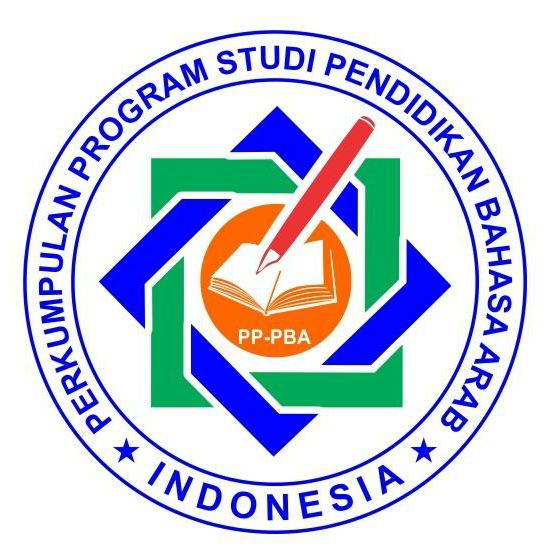Al-Isytiqāq dalam Linguistik Arab Perspektif Ibnu Jinni
DOI:
https://doi.org/10.37680/aphorisme.v5i1.4463Keywords:
Al-Isytiqāq Al-Akbar, Al-Isyqtiqāq Al-Aṣgar, Ibnu Jinni, LinguisticAbstract
This research aims to discuss more deeply one of the thoughts or ideas of one of the linguistic figures, namely Ibn Jinni, about Isytiqāq or derivation, which then the discussion was also discussed by modern linguists. This research is included in the type of qualitative research based on literature studies or library research. Researchers collect data from data sources in the form of books or Ibn Jinni’s books and supported by related journals. Data is collected by reading and recording techniques, namely reading some existing references and then recording the form of Isytiqāq in the book al-Khaṣāiṣ by Ibn Jinni. After the data is collected, the data is analyzed with content analysis techniques and presented using systematic language. As for Isytiqāq according to Ibn Jinni, there are two types of Isytiqāq, namely Isytiqāq, namely al-Isytiqāq as-Aṣgar or now commonly known as Isytiqāq Am or Isytiqāq Tahshrifiyyah and al-Isytiqāq al-Akbar or now generally known as qalb.
References
Afandi, Z. (2018). IBNU JINNÎ: Gagasan, Teori dan Kreasi Berbagai Terminologi. In HAbib (Ed.), Bahasa dan Sastra Arab Lintas Budaya (pp. 53–86). Adab Press.
Aisyah, D. (2016). Analisis Isytiqāq Dalam Kajian Fikih Lughah Dan Pengajarannya. Ta’dib, 18(1), 98. https://doi.org/10.31958/jt.v18i1.282
Al-Ghifary, M. (2018). Konstribusi Ibnu Jinni Dalam Perkembangan Linguistik Arab. In M. Al-Ghifary (Ed.), Pemikiran Tokoh-tokoh Bahasa Arab. Trussmedia Grafika.
Al-Wahid, A. ’Abd. (1945). Fiqh Lughah. Dar Nahdhah Mishr.
Albantani, A. M., Fauziah, A. U., & Sumiantia, I. (2020). Perkembangan Kosakata Bahasa Arab Melalui Isytiqāq. ALSUNIYAT: Jurnal Penelitian Bahasa, Sastra, Dan Budaya Arab, 3(2), 125–138. https://doi.org/10.17509/alsuniyat.v3i2.26243
Arifuddin. (2013). Pemikiran-Pemikiran Fonetik Ibnu Jinni. Jurnal CMES, 6, 63–64. https://doi.org/https://doi.org/10.20961/cmes.6.2.11708
Fatoni, A. S. (2021). Isytiqâq Dalam Bingkai Ilmu Fiqhul Lughah dan Pendapat Para Ulama. Tsaqofiya : Jurnal Pendidikan Bahasa Dan Sastra Arab, 3(1), 1–15. https://doi.org/10.21154/tsaqofiya.v3i1.64
Hanif, A. (2012). Sistem derivasi ( )الإشتقاق dalam Bahasa Arab dan Urgensinya dalam Pengajaran Bahasa. Ta’dib, 15(1).
Jinni, I. (n.d.). الخصائص.
Kamal, H. (2019). Al-Qalb wa al-Ibdàl dalam Bahasa Arab. Jurnal Onoma: Pendidikan, Bahasa Dan Sastra, 5, 399–403. https://e-journal.my.id/onoma/article/view/1405
Kamil, S. (2018). Ensiklopedi Bahasa dan Sastra Arab (1st ed.). Rajawali Press.
Mulu, B. (2009). Al-Isytiqāq dalam Bahasa Arab. In Al-’Adl (Vol. 2, Issue 1, pp. 17–26). https://doi.org/https://dx.doi.org/10.31332/aladl.v2i1.847
Munawwir, A. W. (1997). al-Munawwir: Kamus Arab-Indonesia. Pustaka Progresif.
Nafis, D. (2022). Isytiqāq dalam Pandangan Linguis Klasik dan Modern. JAEL : Journal of Arabic Education and Linguistic, 2(1), 11–19. https://journal.uin-alauddin.ac.id/index.php/jael/article/view/31389
Ponny, M. R. (2022). Linguistik Dalam Perspektif Ibnu Jinni Dan Ferdinand De Saussure. Jurnal Ilmiah Al-Mashadir: Journal of Arabic Education and Literature, 02, 66–82. https://doi.org/https://doi.org/10.30984/almashadir.v2i01.251
Ramadhan, ’Abd al-Tawwab. (1999). Fushul fi Fiqh al-Arabiyyah. Maktabah al-Khanji.
Suaidi. (2014). Isyiqaq: Media Pengembangan dan Adaptasi Bahasa Arab. Alfaz, 2(1).
Susiawati, W. (2015). Lafazh Dan Makna Dalam Perspektif Pemikiran Linguistik Ibn Jinni. Arabiyat : Jurnal Pendidikan Bahasa Arab Dan Kebahasaaraban, 2(2), 167–177. https://doi.org/10.15408/a.v2i2.2133
Suyuthi, J. (n.d.). al-Muzhir fi Ulum al-Lughah wa Anwa’iha. Dar at-Turast.
Wahyudi, H., Hidayat, H., & Hakim, S. W. (2020). Pemikiran Gramatikal Bahasa Arab Oleh Linguistik Arab (Studi Tokoh Lintas Madzhab Nahwu). Al-Fikra : Jurnal Ilmiah Keislaman, 19(1), 113–128. https://doi.org/10.24014/af.v19i1.10235
Zurnafida, & Sobirin, M. (2023). Al-Mustla : Jurnal Ilmu-Ilmu Keislaman dan Kemasyarakatan Kajian Isytiqāq Dalam Memahami Ilmu Al- Qur’an Dan Tafsir. 5(2), 360–378. https://doi.org/10.46870/jstain.v5i2.701
Downloads
Published
Issue
Section
License
Authors who publish with this journal agree to the following terms:
Authors retain copyright and grant the journal right of first publication with the work simultaneously licensed under a Creative Commons Attribution-NonCommercial 4.0 International License that allows others to share the work with an acknowledgement of the work's authorship and initial publication in this journal.
Authors are able to enter into separate, additional contractual arrangements for the non-exclusive distribution of the journal's published version of the work (e.g., post it to an institutional repository or publish it in a book), with an acknowledgement of its initial publication in this journal.
Authors are permitted and encouraged to post their work online (e.g., in institutional repositories or on their website) prior to and during the submission process, as it can lead to productive exchanges, as well as earlier and greater citation of published work.




.jpg)


1.jpg)
